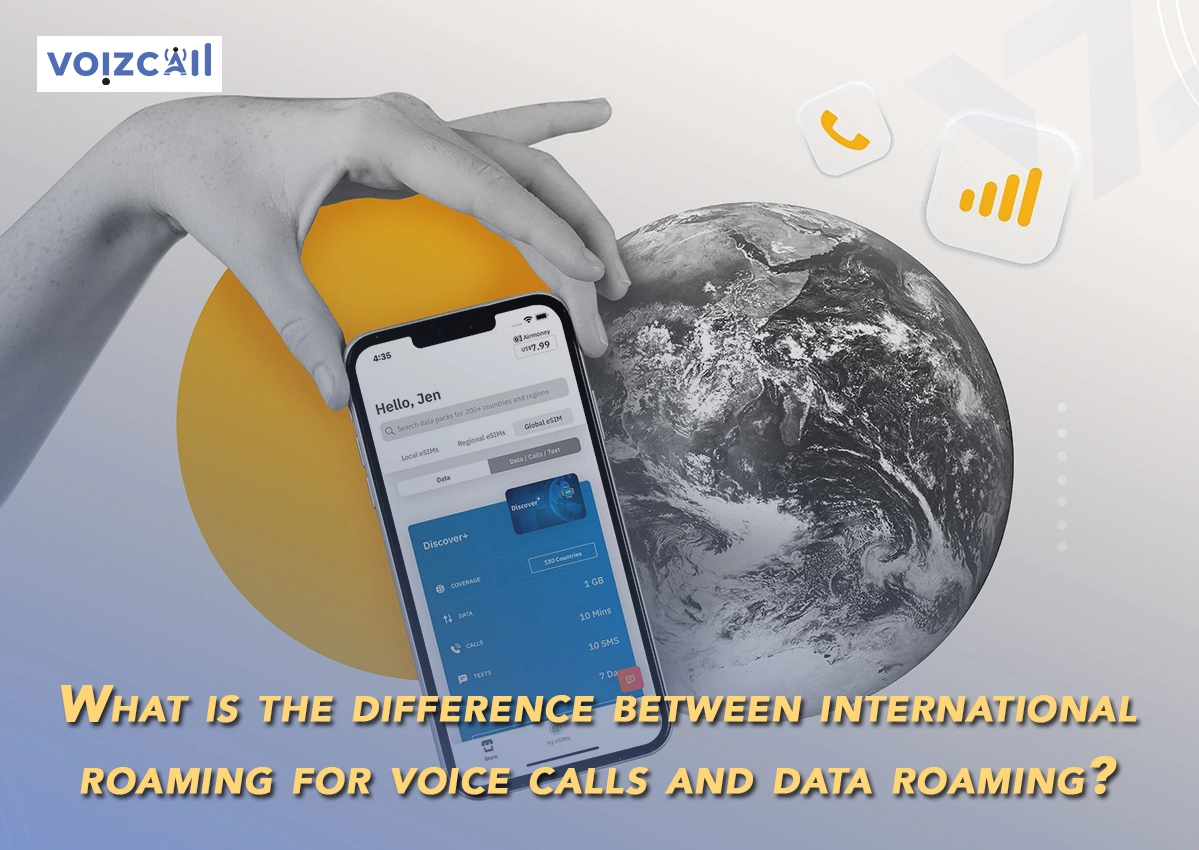


26/Oct/2023
In the realm of mobile communication, international roaming encompasses both voice calls and data usage, but they serve distinct purposes and come with different considerations. This blog explores the key differences between international roaming for voice calls and data roaming, shedding light on how travelers can navigate these aspects during their journeys.
Voice Roaming:
International voice roaming allows mobile users to make and receive calls while they are outside the coverage area of their home network. The primary focus is on enabling real-time voice communication. Here are the key aspects:
1.Communication Mode:
Voice roaming facilitates traditional phone calls. Users can dial numbers, receive calls, and engage in voice-based conversations with others.
2. Charging Structure:
Voice roaming typically incurs charges for both incoming and outgoing calls. The rates can vary depending on the destination country and the user's home mobile service provider.
3. Necessity of International Dialing Codes:
When making international calls while roaming, users often need to include the appropriate international dialing codes for the country they are calling.
Data Roaming:
Data roaming, on the other hand, focuses on enabling mobile users to access the internet and use data-related services while traveling internationally. Here are the distinguishing features:
1. Service Offerings:
Data roaming allows users to browse the internet, use mobile apps, and engage in various online activities that involve data transfer.
2. Charging Structure:
Data roaming charges are typically based on the amount of data consumed. Users may pay for a specific data allowance or be charged per megabyte or gigabyte of data used.
3. Data Optimization and Control:
Travelers can optimize data usage by disabling automatic updates, restricting background data, and controlling app permissions. This helps manage costs and prevent unexpected data overages.
In summary, while international roaming encompasses both voice and data services, the key difference lies in the primary function. Voice roaming is centered around facilitating real-time voice communication, while data roaming enables access to internet services and online activities. Travelers should be aware of the specific charging structures and take steps to optimize their usage for a seamless and cost-effective international roaming experience.